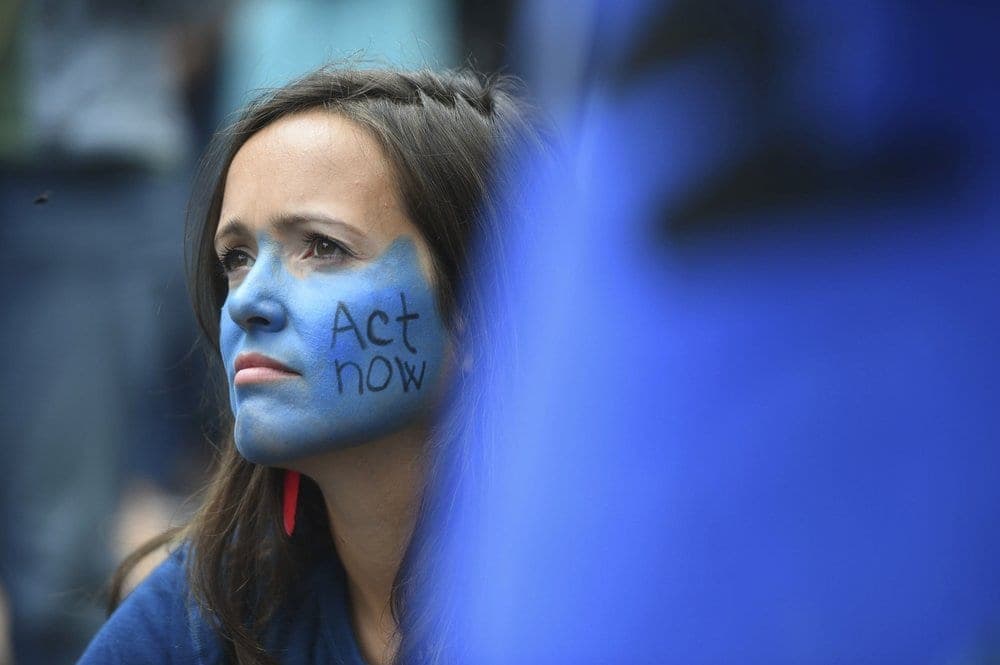LEICESTER, United Kingdom – Despite pledges to fight greenhouse gas emissions, the United Kingdom has spent 60 percent of its support for energy in developing countries on fossil fuel industries, according to a new report.
Released on Tuesday by CAFOD, the development agency of the bishops’ conference of England and Wales, the report — entitled UK support for energy 2010–2017: Protecting the climate and lifting people out of poverty? – argues that the UK’s support for energy in developing countries is inconsistent with supporting “a low-carbon, inclusive energy shift” and calls for a moratorium of UK overseas support for fossil fuels.
“The research, which we undertook for the third time with the Overseas Development Institute, found there is still a contradiction between the commitments the UK has made internationally to tackle climate change, and the support it gives to fossil fuels. In fact, it appears there was no change in the UK’s strategy on overseas energy after it signed up to both the Paris Agreement and the Sustainable Development Goals in 2015, both of which pledge to tackle climate change,” CAFOD said in a statement accompanying the report.
In 2018, the Intergovernmental Panel on Climate Change (IPCC) issued a document warning of disastrous consequences if the world didn’t limit global warming to below 1.5°C above pre-industrial levels.
In May of this year, the UK Parliament declared a “climate emergency” and the next month announced a new emissions target of net-zero greenhouse gases by 2050, the most ambitious target among the G7 nations.
However, the CAFOD report says the UK government has a “patch record” when it comes to its support for fossil fuels overseas.
“The fact that almost 100 percent of UK Export Finance (UKEF) energy support flows to fossil fuels is the ‘elephant in the room,’ undermining UK international climate and development commitments,” the report said.
“Despite increasing investment in low-carbon energy, the UK has provided ongoing – and increasing – support for fossil fuel development. Energy support through UKEF is almost exclusively geared towards fossil fuel investments and projects,” it continued.
“Between 2010 and 2017, there were upward trends for both total UK energy support and ODA [Overseas Development Assistance] energy support in developing countries. UKEF provided the most support for fossil fuels, primarily for oil and gas production,” the report said.
Dr. Sarah Wykes, CAFOD’S lead climate analyst, said it’s “shocking” that UK aid money is still being used on fossil fuels overseas when the country wants to be a leader on climate change.
“At a time when we are reducing the UK’s own reliance on fossil fuels, why are we spending billions of pounds saddling poorer nations with outdated technologies that will cause more climate damage?” Wykes said when the report was released.
Andrew Scott, the Head of the Climate and Energy Program at the Overseas Development Institute, said on Twitter the research “shows that the UK’s support for energy in developing countries is not yet consistent with the goals of the Paris Agreement.”
The CAFOD report makes several recommendations, including placing a moratorium with immediate effect on any new overseas development aid investments in fossil fuels in any forms, as well as a transparent review of any existing fossil fuel investment.
“We want the Secretary of State for International Development to immediately stop any aid money being spent on fossil fuels. The government also needs to come up with a plan for how all government departments will stop supporting fossil fuels and move instead to backing renewable energy sources,” CAFOD said in its statement.
“Our analysis also found that less than 5 percent of overall UK energy support went to getting people living in developing countries connected to modern energy services, while only 12 percent of the aid money spent on energy was spent tackling energy access,” it continues.
CAFOD noted the UK’s commitment to the UN Sustainable Development Goals, including “access to affordable, reliable, sustainable and modern energy for all by 2030.”
“To meet this commitment and deliver the radical energy transition the world needs, the UK should also significantly increase support for the local, renewable energy solutions that are the best option to connect people living ‘off-grid’,” the statement continued.
CAFOD also said the UK government needs to come up with a plan for how all government departments will stop supporting fossil fuels.
A government spokesperson acknowledged to The Independent that the UK needs “to do more if we are going to meet the goals of the Paris agreement on climate.”
The spokesperson reiterated the stance of the prime minister at the G20 last month, that “in future we will look for the greenest way to deliver UK aid.”
“Developing countries will be hardest hit by climate change. We cannot eradicate poverty without also protecting the environment,” the spokesperson added.
Follow Charles Collins on Twitter: @CharlesinRome
Crux is dedicated to smart, wired and independent reporting on the Vatican and worldwide Catholic Church. That kind of reporting doesn’t come cheap, and we need your support. You can help Crux by giving a small amount monthly, or with a onetime gift. Please remember, Crux is a for-profit organization, so contributions are not tax-deductible.
















